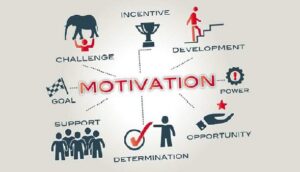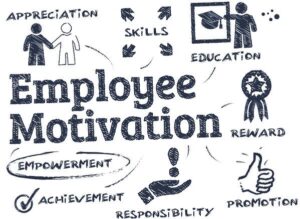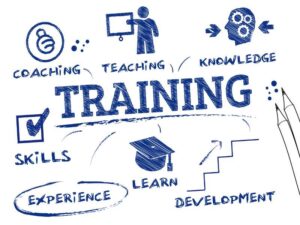The day before yesterday, I got a sudden phone call from one of my subordinate employees at around 6.30 AM. Any early morning call means something is an emergency.
But this employee Ravi expressed that I should come early today with him as he had to go on tour to some other place and my office car used to come a bit came and he had something urgent personal issue to discuss with me.
After reaching the office early before other employees came, he explained his issues.
He could not sleep yesterday night as one employee from the client-side told him something about his honesty that disturbed him.
Being a senior, I knew one thing that I must show some empathy to listen to him attentively. I did.
Then, I patted him on his shoulder and assured him that I know him very well about his integrity and very hard-working attitude. So don’t worry. I observed immediate change in his entire physiology and whatever anxiety was there in his was gone.
Ravi seemed happy and boost up.
What I did. I gave him some sort of motivation.

Employees who are happy with their jobs have a significant impact on your company’s growth and success. Disengaged personnel, on the other hand, might have a detrimental impact on your company’s capacity to become or remain a market leader. The costs of a disengaged workforce are estimated to be in the trillions of dollars, according to experts.
But how do a company make employees happy with their jobs?
Here comes the term motivation.
Motivating employees in the workplace is considered the best tool for the growth of the company as a whole.

Once employees are happy with their jobs, productivity is bound to increase.
That’s why, I found Zig Ziglar, an American author, salesman, and motivational speaker quote most relevant.
“People often say that motivation doesn’t last. Well, neither does bathing, that’s why we recommend it daily.”
The quote itself says what motivation is and what we should do.
Unless employees are motivated on daily basis in the workplace, overtime, productivity will diminish.
Though most of the company/organization knows that motivating employees in the workplace is one of the important aspects but how many companies religiously follow it that a question every organization should ask.

Once the organization realize that motivating employees in the workplace will lead the organization as a whole to a new height, it affects the zeal of every employee work under that company. Every employee feels high in such cases and puts all possible effort to motivate each other. Especially senior employees of the organization must ponder upon this.

Foremost thing is, it all starts with me. It means senior management of the company.
Suppose I am in a senior position of the company and if I am not motivated because of so many problems inside me, how can I motivate others?
Everything starts with you as a business leader. Nothing will change in terms of enhancing employee engagement and motivation if you simply read this knowledge without putting it into practice. Share this information with your leadership team, as well as your employees, and let them know that you are going to work on improving your corporate culture so that every employee has the chance to succeed while also making a positive impact not only on their peers but also the local business community.
So let’s have a close look at what an organization can do in motivating their employees in the workplace.
# Being felt important in the workplace

What works best is not only telling but also showing an employee that they are valuable. When you are letting employees know how important and valuable they are, use data and evidence to back up what you are saying. Let them know that there’s lots of room for advancement within the organization and that you would like to see them continue on the fast road to leadership success. Create a progression path for them that allows them to optimize their involvement and impact.
# The workplace should be pleasant.

No one wants to spend hours in a drab, uninteresting environment. Working in an aesthetically beautiful, well-lit, functional, and enjoyable environment is a lot more enjoyable. The first step is to ensure that everything is in good functioning order and that you have up-to-date equipment. This means getting rid of your Cold War-era back office computer, your sluggish point-of-sale system, and anything else that people might want to check the window out of frustration. It also entails keeping things tidy and appealing. It is not necessary to spend a lot of money to improve your living environment. Consider showcasing local artisans or purchasing unique furnishings at a flea market. All of these small details will add up to something special.
# Leadership should have empathy for fellow employees.

Employees enjoy working for leaders that appreciate and understand their life experiences. We are all going to be sick, have family members who are going through difficult times, and we are all going to need some time off now and then to help out and re-centre.
Let employees know that the more they talk to you and tell you about their life, the more you will be able to help them. It’s a two-way street that, when done correctly, works extremely well.
# Transparency.

Employees become more invested when they have a better understanding of how the firm is running. As a result, make it a habit to communicate this information with them on a frequent basis. Fortunately, Square makes this simple. You may provide daily, weekly, or monthly sales data, as well as information about how many of your clients are new versus returning, using Square’s POS. Having access to all of this information not only makes your employees feel like they are a valuable part of the company but also helps you identify areas where things may be better.
# Recognition.

Sometimes all someone wants is a pat on the back for a job well done. If an employee has put in a lot of effort on a project or gone out of their way to assist a coworker, don’t be afraid to compliment them. It’s not only about the act of acknowledgement; it’s also about the principle: if people believe their efforts are valued, they’ll feel compelled to keep working hard. Employees who have had their achievements recognised have also expressed a better level of enjoyment from their employment. However, if they believe their long hours and personal sacrifices were in vain, they are unlikely to go above and beyond for the organisation again.
# Positive feedback

It’s fantastic to be pleased with your work. It is, in fact, one of the most crucial factors of job satisfaction. Workplace satisfaction can come from a variety of places like our employee Ravi, whom I just gave feedback on how hard-working he was that made him happy and inspired. Also, if your customers show gratitude for these things, make sure to tell your employees about them. This is really simple with Square Feedback.
# Flexible work schedule

Technology has changed how businesses run and how people work–or will work–in the future. Employees want the same flexibility from their companies when it comes to scheduling if they may read business emails on their phones or finish assignments on their laptops at home. In truth, they do. In a Forbes poll, 46 per cent of respondents said flexibility is the most important criterion while looking for work. Employers are also paying attention: 86 per cent of the organisations on Forbes’ 2014 “Best Companies to Work For” list offered some type of flexible schedule. You can see, in pandemic this time, so many employees are working from home only.
# Training

Continuous training’s objective isn’t only to give employees something to do to kill time; it’s also to help them swiftly expand their knowledge and establish themselves as “the authoritative resource in their specialised market niches.”
Through your extended and continuous learning programmes, you want to take “good people and make them great,” and then take “great personnel and make them outstanding.”
You’re searching for small, steady progress in the right direction.
According to a Gallup poll, 87 per cent of Millennials believe “professional or career growth and development opportunities” are critical in the workplace, compared to only 69 per cent of non-Millennials.
Regardless of how fantastic your corporate culture and environment are, you take the lead in fostering your personal growth and drive. You can increase your personal growth, motivation, and professional development to combat monotony, stagnation, and staleness which definitely boost up motivating employees in the workplace.
-End-
For other interesting blogs, click below:
Why books so important to change your life
How Karim Ali, Unsung Hero Of Assam makes spectacular fame to Dance

